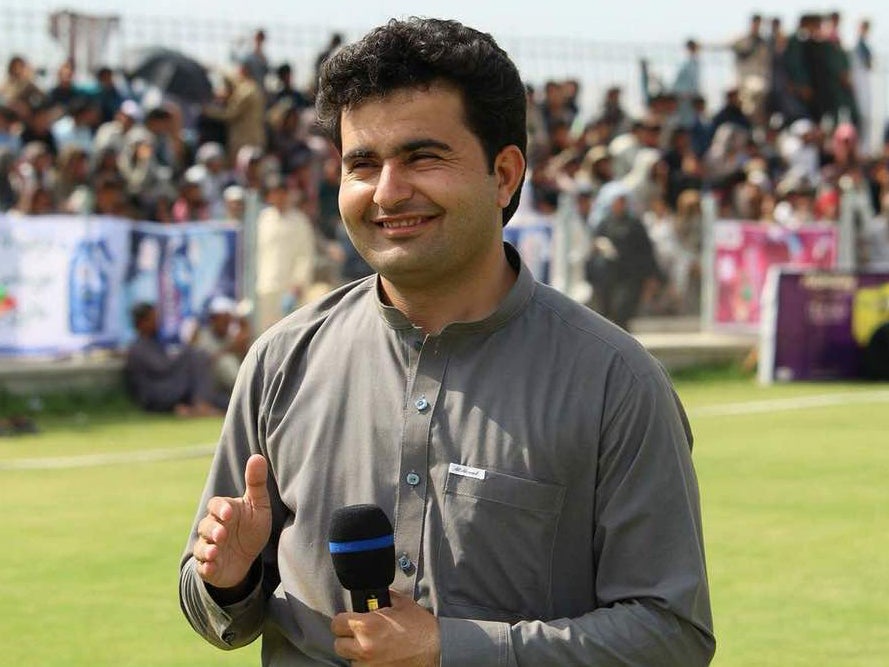Kabul attacks: BBC reporter and AFP photographer among 10 journalists killed in Afghanistan violence
Members of media 'clearly targeted' in twin suicide bombings, says French news agency

Your support helps us to tell the story
From reproductive rights to climate change to Big Tech, The Independent is on the ground when the story is developing. Whether it's investigating the financials of Elon Musk's pro-Trump PAC or producing our latest documentary, 'The A Word', which shines a light on the American women fighting for reproductive rights, we know how important it is to parse out the facts from the messaging.
At such a critical moment in US history, we need reporters on the ground. Your donation allows us to keep sending journalists to speak to both sides of the story.
The Independent is trusted by Americans across the entire political spectrum. And unlike many other quality news outlets, we choose not to lock Americans out of our reporting and analysis with paywalls. We believe quality journalism should be available to everyone, paid for by those who can afford it.
Your support makes all the difference.A BBC reporter was among 10 journalists killed on a bloody day in Afghanistan. Also among the dead was Agence France Presse’s chief photographer in the country.
Ahmad Shah, of the BBC’s Afghan service, was shot dead in Khost province just hours before twin suicide blasts “clearly targeted” reporters in the capital Kabul.
A suicide bomber pretending to be a fellow reporter killed at least eight journalists from local media alongside Shah Marai, of AFP, in a second bombing while they rushed to cover the first. In all, 25 people were killed.
The BBC said Mr Shah, 29, was a “highly capable journalist who was a respected and popular member of the team”. He had worked for the broadcaster’s Afghan service for more than a year, World Service director Jamie Angus said.
He added: “This is a devastating loss and I send my sincere condolences to Ahmad Shah’s friends and family and the whole BBC Afghan team. We are doing all we can to support his family at this very difficult time.”
The AFP said Mr Marai, an Afghan national, began working at the French news agency as a fixer and driver in 1996, before transitioning to photography. He leaves behind six children including a newborn daughter.
“This tragedy reminds us of the danger that our teams continually face on the ground and the essential role journalists play for democracy,” the agency added.
AFP chairman Fabrice Fries said: “Journalists were targeted by this attack. Our thoughts and our condolences go out to his family and the families of the other journalists killed.”
The suicide bombings took place in the central Shash Darak area of Kabul, home to Nato’s Afghanistan headquarters and several embassies.
Police spokesman Hashmat Stanekzai said the first suicide bomber was on a motorbike, while the second was among the crowd of reporters who were trying to cover the first explosion, pretending to be one of them.
The second attacker then detonated his explosives while still among the reporters, also intending to hit those trying to help victims of the initial blast, he added.
Tolo News, an Afghan broadcaster, named the eight local media reporters as: Mahram Durani, Ebadullah Hananzai and Sabawoon Kakar, of Radio Free Europe/Radio Liberty; Ghazi Rasooli and Nowroz Ali Rajabi, of 1TV; Saleem Talash and Ali Saleemi, of Mashal TV; and Yar Mohammad Tokhi, of Tolo News.
Isis later claimed the bombings.
The Afghanistan Federation of Journalists and the country’s media organisations called the bombing a “war crime”, Tolo News reported.
In a joint statement reported by the broadcaster, they added: “Despite today’s attack and other threats against journalists, the Afghan media is committed to providing information.
“The attack in the heart of Kabul and in the green zone indicates a serious lack of security by the government.
“In a joint letter, the Afghan media has called on the International Court of Justice and the UN Security Council to investigate the incident.”
Following the attacks, press freedom advocates Reporters Without Borders (RSF) called on the UN to appoint a special representative for journalist safety to send “the strongest message to the international community”.
In the past 15 years 1,035 professional journalists have been killed around the world, RSF said.
A third suicide bombing took place on Monday in Kandahar province, where a suicide bomber was said to have targeted a Nato convoy in the district of Daman but killed 11 children from a religious school near the site of the blast.
Join our commenting forum
Join thought-provoking conversations, follow other Independent readers and see their replies
Comments